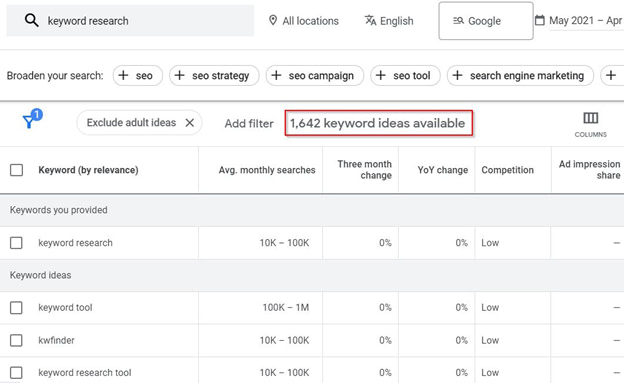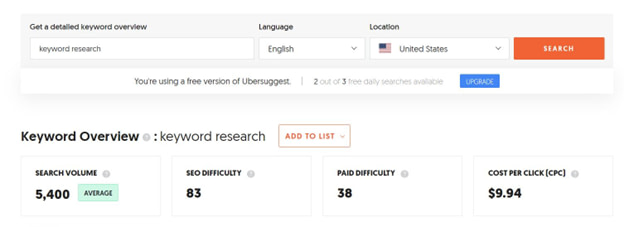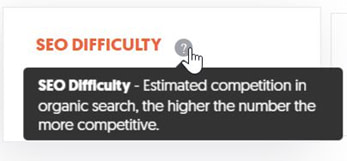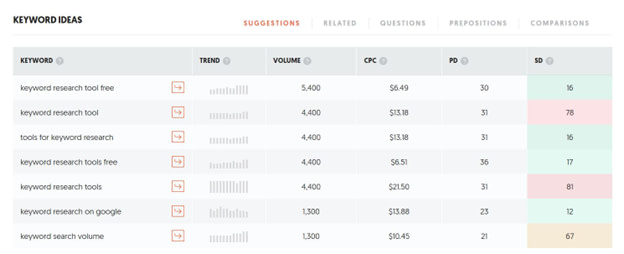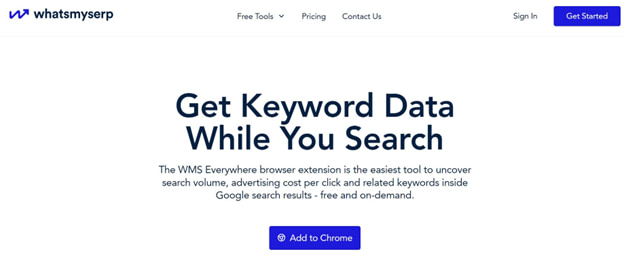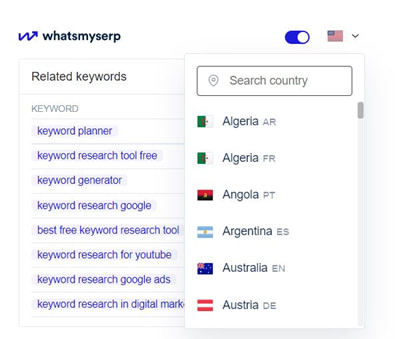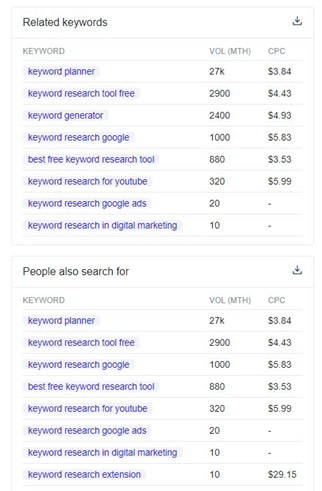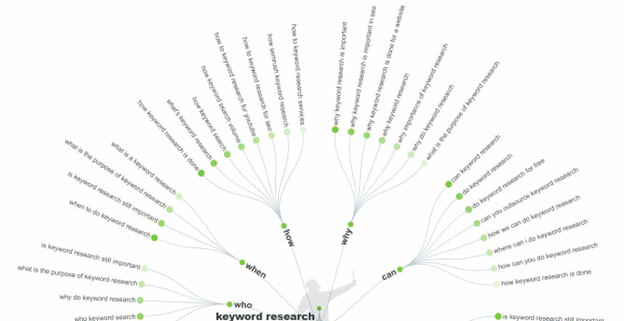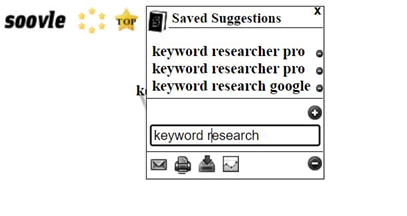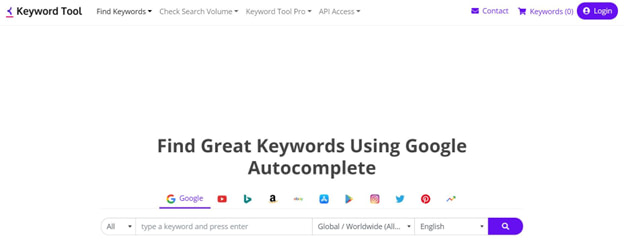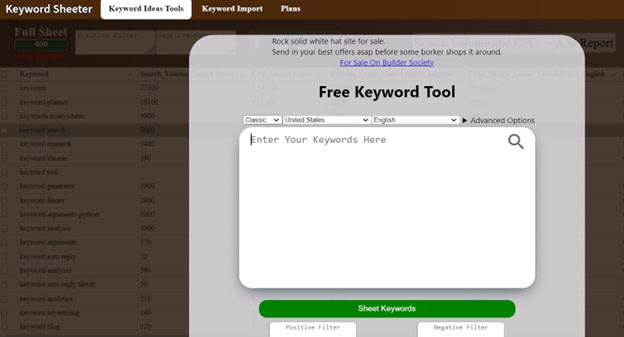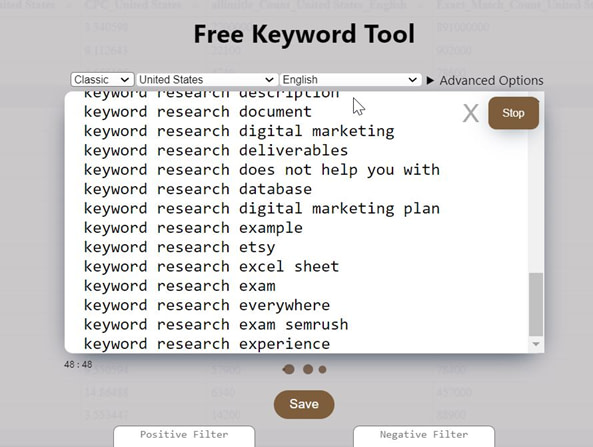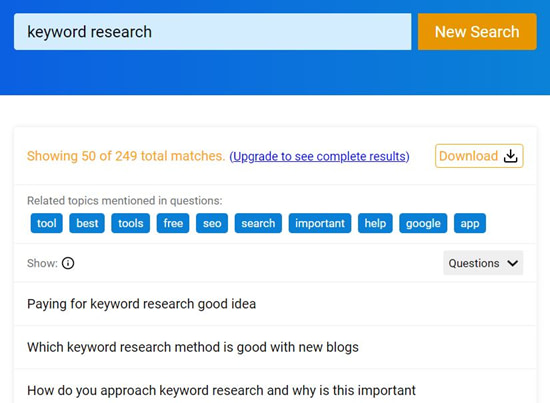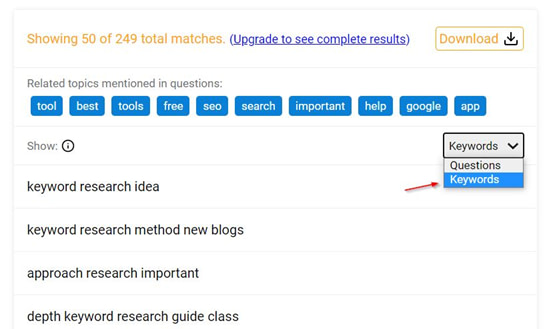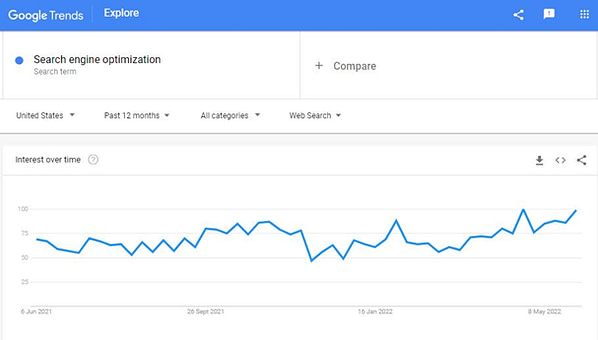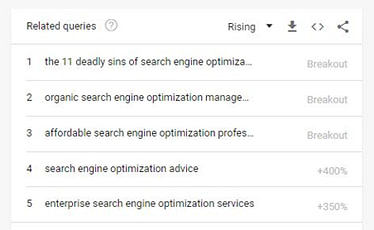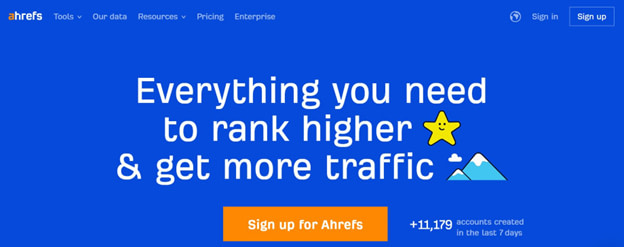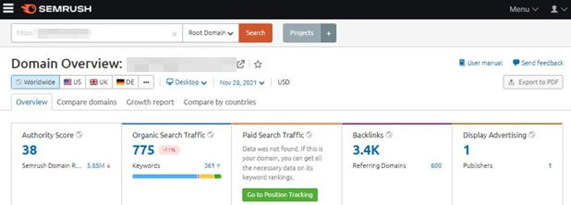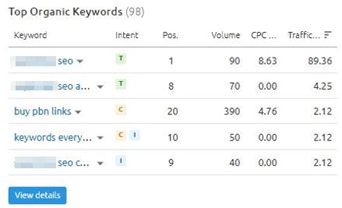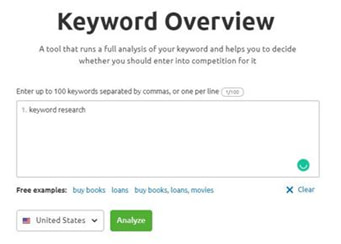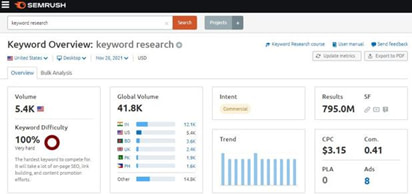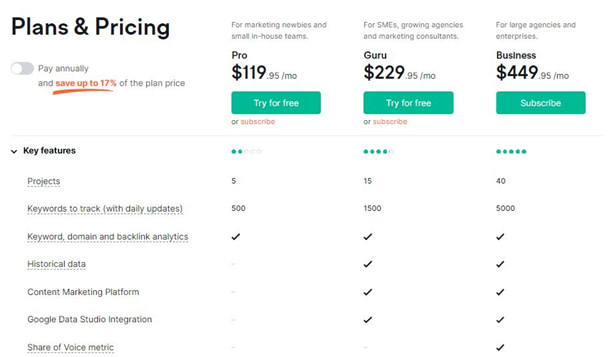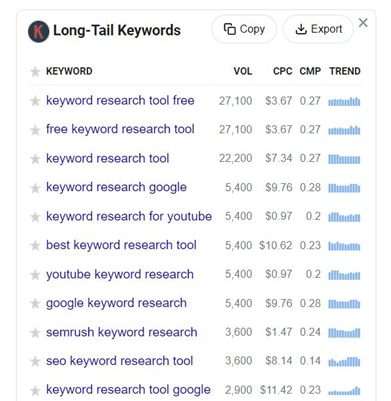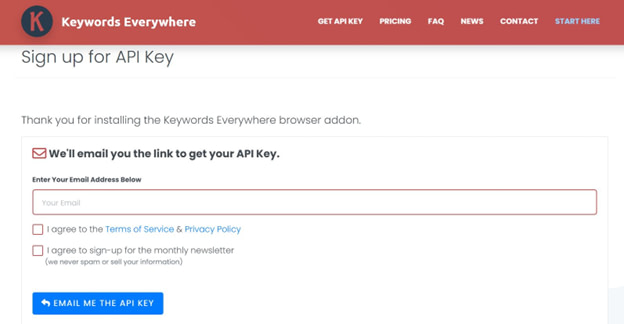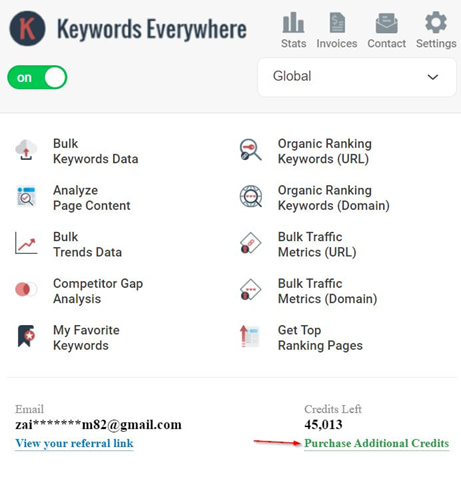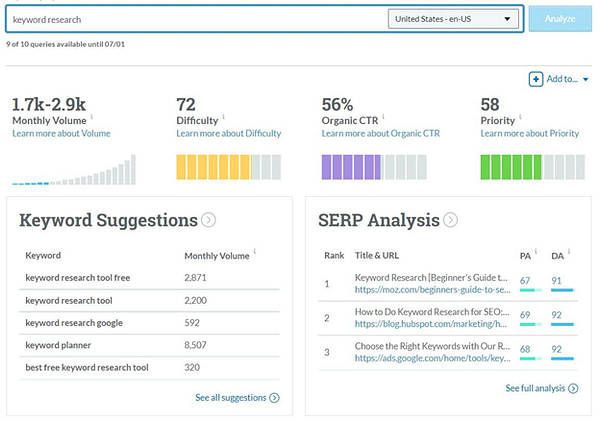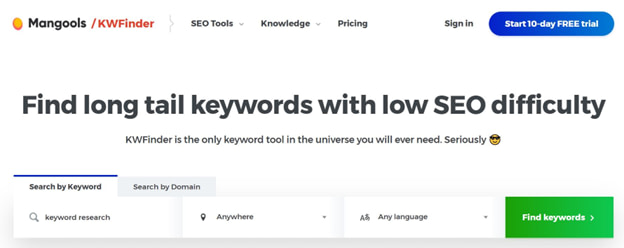Keyword research is a vital part of any SEO strategy. Done right, it puts you on the right path and maximizes the chances of success.
There are plenty of keyword research tools out there, free and paid, which is a great thing.
But, the problem is that too many options can confuse you, especially if you’re a newbie.
In this in-depth guide, we’ll cover:
- What’s keyword research and why is it so important?
- The best keyword research tools and which one is right for you?
- And, more
Let’s dive in.
What’s Keyword Research?
Keywords are phrases or search terms that people use to find stuff online.
And, keyword research is the process of finding those keywords or search queries.
SEOs tend to focus their keyword research efforts on Google as it’s the most popular search engine in the world.
Once you get a profitable keyword, you produce content around it and try to rank that content on the first page of Google.
Why Do Keyword Research?
Contrary to what many digital marketers think, finding a decent list of profitable keywords can be a tough nut to crack.
In addition to using the right keyword research tool, you also want to analyze a keyword’s potential before working on it.
Proper keyword research is crucial if you want to rank at the top of Google’s first page, in a fairly short period of time.
With that out of the way, let’s talk about the best free keyword research tools that crush it in 2022.
Best Keyword Research Tools in 2022 (Free)
Now, if you can’t afford to spend on a paid keyword tool, there is a whole list of free ones that can be equally effective.
Google Keyword Planner (Best Overall)
Google Keyword Planner is one of the most popular keyword research tools out there.
And since it’s owned by Google, you don’t have to worry about the accuracy and reliability of the data.
The tool is all you need to find highly profitable keywords in your industry.
And although it’s primarily designed to let you do keyword research for PPC, you can use it for SEO purposes as well.
Keep in mind that you need to have a Google Ads account if you want to use Google Keyword Planner.
Thankfully, it’s easy to create a Google Ads account.
The best thing is that you don’t have to create a paid campaign in order to use the Keyword Planner.
You can enter any keyword and the keyword tool will spit out a long list of related keywords within seconds.
To get keyword ideas with Google Keyword Planner, you can do one of two things:
- Enter your seed term or even multiple of them, and hit “Get results”
- Or, you can enter a website and extract its keywords
Here’s what you’ll get.
As you can see, the tool gives an estimate of the monthly search volumes of all the keywords.
You won’t be able to see the exact volume unless you’re running an ad.
The good thing is even a $1/day ad will enable that particular feature of the tool.
Top-of-Page Bid
Another great feature of Google Keyword Planner is the top-of-page bid.
The top-of-page bid is the amount advertisers are paying for every click on their ads.
So, for instance, if the top-of-page bid is $10, advertisers would be paying $10 for every click on their ad.
And, a keyword with a $10 top-of-page bid will be more competitive to target than a keyword with an $8 bid.
However, although GKP is great for collecting keywords in bulk, it doesn’t tell you about the SEO difficulty of these keywords.
So, you’ll either have to manually check the difficulty or use another tool.
Using GKP for purely SEO can be tricky, so you don’t want to fully rely on it.
Let’s move on to the next tool; a tool that gives you the SEO competition of a keyword for free.
Ubersuggest
Ubersuggest is one of the most popular freemium keyword research tools in the market.
The only catch, in the free version, is that you don’t get more than 3 searches per day.
So, if that’s not enough for your keyword research needs, you’d have to upgrade to the pro plan, which, by the way, isn’t expensive either.
Anyway, let’s focus on the free version of the tool for now.
As soon as you hit “Search” after entering your seed term, Ubersuggest gives you the following metrics:
- Search volume
- CPC (cost-per-click)
- SEO difficulty
- Paid difficulty
So, what’s the stand-out feature of Ubersuggest?
The “SEO difficulty” metric.
Here’s what it tells you:
That’s something you don’t get with most other free keyword research tools.
But, of course, you don’t want to completely rely on the SEO difficulty metric.
There’s more to “Qualifying” a keyword, which we’ll talk about in detail later.
Moving on.
Ubersuggest Related Keywords
As you scroll down, you’ll see a list of related keywords.
Now, if your goal is to find SEO keywords, you don’t want to pay attention to the “CPC” and “PD” (paid difficulty) metrics.
Also, you won’t get the complete list of related keywords unless you upgrade.
But, these keywords are going to be more than enough if you’re just starting.
Keyword Surfer
Keyword Surfer is one of the best alternatives to paid keyword research tools.
It gives you the monthly search volume and cost-per-click (CPC) of your Google search query.
To use it, you just have to install the browser extension and search your target keyword on Google.
The keyword research tool also gives you a few relevant keyword ideas.
The “Similarity” metric of Keyword Surfer tells you how similar that keyword is to your main search query.
Moreover, as you can see at the top of the screenshot, Keyword Surfer also lets you create a blog post outline around your keyword.
What’s more, it also showcases the word count, monthly visits, and backlinks of the first-page results.
All in all, Keyword Surfer is a completely free tool with incredibly useful features.
What’s My SERP
The best thing about WMS is that you get all the data you need on a keyword while searching it on Google, just like Keyword Surfer.
To use this amazing free keyword research tool, all you’d have to do is install the Chrome extension.
Next, search the keywords on Google to know their search volumes and CPCs for free.
It also shows the monthly search volume of the keyword for a specific country.
So, if you are targeting a specific geographic location, and want to know a keyword’s potential, WMS can help.
But wait, there’s more.
The tool also gives you a bunch of related searches that are being searched on Google, along with their monthly searches and CPC.
You can also download these keywords in a CSV file.
Answer The Public
Another free and amazing keyword research tool is Answer the Public.
It is perfect if you want to find question keywords for your blog posts or web pages.
As soon as you enter your seed term and hit “Search”, it’ll spit out a laundry list of questions your prospects are asking on Google.
Now, by default, the tool creates an eye-catching visual of all the related questions.
If you don’t like that, you can always switch to the “Data” mode.
As you can see, you can find a lot of question-focused keywords with Answer the Public.
So, what are the limits on Answer the Public’s free version?
You get 3 keyword reports per day.
So, if you like what you get with the tool, and want more reports, you’d have to upgrade.
Soovle
Soovle is a free online keyword research tool that extracts tons of keywords from all around the internet, be it Google, Yahoo, Bing, or YouTube.
As you type your keyword, it starts generating relevant keywords around it.
Moreover, it’s perfect for scraping keywords for a particular digital platform.
For instance, if you are a YouTuber, you can do keyword research for YouTube as well.
Or, maybe you want to know what your audience is searching on Amazon.com?
A stand-out feature of Soovle is “Saved Suggestions”.
It’s at the top-right corner of your screen; just drag and drop the keywords you like into the box to save them.
After saving all the best keywords, you can download them to your computer.
Google Search Console
Now, you might be thinking, “Google Search Console isn’t a keyword research tool”.
Well, you’re partially right; It’s not a traditional keyword research tool and is mostly used for tracking.
But, it helps you identify your best-performing keywords or opportunity keywords.
To find these “Opportunity keywords”, you can use its “Performance report” feature.
It gives you a list of keywords or pages that are already getting traffic from Google.
To find opportunity keywords, see which ones are attracting some traffic, but have more potential.
In short, the keywords that could be ranking at the top of Google’s first page.
For instance, if a page is ranking for a keyword on number 20, you can work on it to rank it higher, say number 3.
To wrap up, Google Search Console is probably the best free tool to find opportunity keywords.
KeywordTool.io
Keyword Tool is another great tool for scraping tons of keywords from Google.
After you search your main keyword, the tool provides you with a list of related keywords with search volumes, CPC, and competition.
But, you can only get the whole list when you’re a paid member.
A unique feature of this freemium keyword research tool is that you can use it for a variety of platforms, including:
- YouTube
- Bing
- Amazon
- Play Store
- And, more
Keyword Sheeter
Keyword Sheeter is another keyword research tool (free) that every SEO should utilize.
It’s a little different than most other keyword tools.
As you enter your main keyword and click on “Sheet keywords”, the tool will start spitting all the related keywords until there are no more keywords to scrap.
This makes it great for content creators that want to collect as many keywords as possible related to a particular query.
Here’s what it gets for the term “Keyword research”.
You can always make it stop if you think you don’t need any more keywords from it.
There’s much more to Keyword Sheeter though.
But, you’d need to pay for any additional features.
For instance, the keyword search volumes and CPC bids don’t come on the free plan.
Paid Keyword Sheeter Features
- Exact keyword results
- All-in-title results checker
- Top 100 SERPs
- Term explorer difficulty report
- Full sheet report
- Full backlink SERP report
QuestionDB
QuestionDB, as the name suggests, gives you question-focused keywords.
It’s free and fetches keywords from Reddit threads.
Moreover, the tool is similar to Answer The Public, which makes it a good alternative.
So, you enter a keyword and it will get a long list of questions related to it.
As you can see, it gives you 50 questions for free.
If that’s not enough for you, you’d have to upgrade to get more.
The good thing is that its $15/month plan offers complete results and 500 searches every month.
That’s not it.
You can also use the tool to get non-question keywords related to your main term.
Just select the “Keyword” option instead of “Questions”.
Google Trends
Google Trends can be incredibly helpful in identifying a keyword’s future potential.
It gives you the past trend of any keyword, allowing you to make informed decisions.
So, how can Google Trends help you with keyword research?
In three ways.
We’ve covered the first one; looking at the search trend for a particular keyword.
The second way is to search your main term and look at the “Related queries” section for more keyword ideas.
Comparing Two Keywords
The third one would be to compare two keywords.
For instance, people want to learn about search engine optimization all the time.
But, there are two ways it can be searched:
- Search engine optimization
- SEO
Now, as a business owner targeting this specific concept, you want to know which term is more popular among your audience.
Google Trend can help you do that.
Just go to “Compare” and add the second term to get the second graph.
Obviously, you’d want to work on “SEO”, a keyword that has clearly taken over “Search engine optimization”.
Best Keyword Research Tools (Paid)
Ahrefs (Best Overall)
Ahrefs is arguably the most comprehensive SEO tool out there.
From profitable keyword research to competitor analysis, Ahrefs offers it all.
So, after owning it, you don’t have to use any other SEO tool.
The company has a database of a whopping 7 billion keywords and supports 171 countries.
And although it’s mostly used for Google keyword research, it also lets you find profitable keywords for YouTube and Bing.
Let’s see how to use Ahrefs the right way.
Finding Keyword Difficulty with Ahrefs
Thankfully, you don’t get a vague keyword difficulty metric from Ahrefs.
For every keyword, it gives you a difficulty score from 0 to 100, 0 being the lowest.
But, that’s not it.
Unlike other keyword research tools, Ahrefs also tells you how many backlinks would you need to rank for a specific keyword.
Plus, Ahrefs keyword difficulty score is more accurate than most other keyword research tools.
In addition, Ahrefs lets you apply a variety of filters to generate more personalized results.
For instance, you can get it to list the keywords that have an SEO difficulty of less than 1.
Or maybe, you just want to target keywords with a specific search volume?
Ahrefs gives you a lot of control over your keyword results.
Plus, you can even save your keyword lists for later.
A stand-out feature of Ahrefs keyword explorer is that it tells you how many estimated clicks a keyword gets.
This helps you better qualify a keyword as keywords that get lower clicks are:
- Targeted by advertisers (Top 4 search results)
- Answered by Google (Through featured snippet)
All in all, since Ahrefs offers super helpful features and is an all-in-one SEO tool, it’s the best one on the market right now.
The only caveat of Ahrefs is that its price can be a little too much, especially for someone who’s just starting out.
SEMrush
SEMrush is right up there with Ahrefs as far as popularity is concerned.
Its powerful keyword research features let you find and qualify keywords in any industry.
Although it’s expensive (even more than Ahrefs), it’s a one-stop shop for all your SEO needs.
Let’s take a look at SEMrush features now.
Now, as soon as you search a keyword in the SEMrush search bar, it spits out a laundry list of closely related search terms.
But, a feature that makes SEMrush stand out among its competitors is competitor analysis.
From the keyword research perspective, this means you can find the keywords your competitor is already ranking for on Google.
This is an incredibly effective strategy to snatch the first-page rankings for your target keywords.
But, how do you find your SEO competitor?
Just do a quick keyword search and look out for your competitors.
Let’s see how you can find your competitors on the first page of Google.
Install this browser extension, then search your target keyword.
It’ll tell you the DA (domain authority) of every web page ranking on the first page.
See if there’s any site that has a DA less than your site’s DA.
Those are your competitors, at least for that particular keyword.
You can find your own site’s DA by searching it on SEMrush.
Just put your domain name in the search bar and it’ll tell you its authority score.
Analyzing Competitor Domain
Here’s how you can analyze a competitor’s domain or website with SEMrush.
Enter your competitor’s domain and hit search.
SEMrush will tell you its:
- Authority score
- Organic search traffic
- Backlinks (External links pointing to the domain)
- Display advertising
But, here comes the best part; scroll down a little and you’ll see a bunch of “Top ranking keywords” for that particular domain.
You’ll only see five results on that page; click “View details” to get the full list.
The top organic keywords list gives you a lot of relevant keywords to work on.
Keyword Overview Tool
Another way to find profitable SEO keywords with SEMrush is the “Keyword Overview” tool.
You can search up to 100 keywords with it, separated by commas.
As soon as you hit “Analyze”, SEMrush will give you actionable insight into the keyword.
Now, scroll down and you’ll see a bunch of keyword variations, questions, and related keywords.
SEMrush is, without a doubt, one of the best SEO tools in the market, but the caveat is that it doesn’t come cheap.
Keywords Everywhere
Although getting started with Keywords Everywhere is free, its paid version is a must-have for every SEO content creator.
That’s especially true because it’s super cost-effective.
Let’s first take a look at Keywords Everywhere features.
First, you need to install its free browser extension.
After installing the extension, you’ll have to get the API and buy the credits.
The term “Credits” just means keywords; 1 credit means 1 keyword.
So, when the tool gives you 20 keywords, your 20 credits will be consumed.
The best thing is you can buy 100,000 credits for a mere $10.
You can use these credits for a whole year.
So, how does Keywords Everywhere work?
It tells you the monthly search volume of a keyword right on Google’s search page.
As you can see, Keywords Everywhere gives you four metrics for your searched keyword:
- Monthly search volume
- CPC
- Competition
- Historic trend
The historic trend tells you how popular a keyword has been in the past.
And, it shows the CPC in decimals, so if you see a difficulty of 0.1, it would mean 10 out of 100. The maximum difficulty a keyword can have on Keywords Everywhere is 1.
Keywords Everything Related Keywords
Keywords Everywhere also gives you plenty of related keywords. These also include long-tail keywords that are typically easier to rank.
As you can see, the tool gives you a lot more keywords than you’d even need.
Plus, you can download all these keywords in an excel file by clicking on the “Export” option.
Now, if you like what you see, go ahead and get the 100,000 credits for just $10.
Here’s how you can buy Keywords Everywhere credits.
Go to the keywords Everywhere official website and click on “Get API key”.
Then, sign up for the API key by entering your email address.
You’ll then get a link in your email inbox. Click on it and access your API key.
Next, you’ll just have to go to the Keywords Everywhere extension icon and click on “Settings”.
Then, paste the API key that you accessed through your email.
Lastly, go to the extension menu and click on “Purchase additional credits”.
The good thing is Keywords Everywhere fetches data from Google’s database, which is why marketers trust this tool.
Moz Keyword Explorer
Moz is one of the most credible SEO companies with powerful keyword research features.
Its Keyword Explorer is perfect for finding lateral keyword ideas for your blog.
Here’s an example.
As you can see, it gives you a difficulty score of a keyword with a monthly search volume range.
But, there’s much more to Moz Keyword Explorer; let’s quickly look at its features:
Difficulty
It tells you how tough it will be to rank for the keyword.
Moz keyword “Difficulty” is a number from 0 to 100; the higher this number, the more competitive the keyword gets.
Organic Click-Through Rate
Organic CTR tells you how many of the total searchers of a particular keyword actually click on an organic search result.
A low organic CTR could mean one of two things:
- Too many advertisers are ranking at the top of the search results
- Google gives the answer to the query through a featured snippet or the knowledge graph
So, you want the organic CTR to be as high as possible.
SERP Analysis
Moz SERP analysis tells you a lot about the blog posts or web pages ranking on the first page for your target search term.
It tells you the:
Domain Authority: A website’s overall authoritativeness.
Page Authority: The authority of that specific page (the lower the PA of a web page, the easier it is to outrank).
Linking Domains: Web pages that link to that domain. A high number and quality of linking domains make a website hard to outrank.
KWFinder
KWFinder is a powerful keyword research tool with a user-friendly interface.
Apart from that, the features this tool offers are pretty much the same as any other good keyword research tool.
How to Perform Manual Keyword Research or SERP Analysis?
SERP analysis is when you manually qualify a keyword.
It includes searching the keyword you want to rank for and analyzing the first-page results for opportunity web pages.
Opportunity web pages are pages that are less authoritative than your website.
As discussed earlier, you can use the MozBar extension to identify low-DA sites on the first page.
Then, visit those sites and observe their content and on-page SEO.
Outranking an Opportunity Web Page
Here’s what you can do to outrank an opportunity web page:
- Observe their content and publish a much better and longer piece on your web page
- Use more visuals than them (Primarily images)
- Add outbound and internal links to your content
- Make sure your content satisfies the searcher’s intent (What type of information do they want?)
Keep in mind that while the word count of your web page matters, you don’t want to add content just for the sake of it.
Google tends to show web pages that cover a topic comprehensively.
So, just make sure your piece is helpful and covers the topic from every aspect.
Frequently Asked Questions
Is Keyword Research Still Important?
Absolutely. Keyword research is still one of the most important aspects of SEO. And, any SEO strategy that doesn’t focus on keyword research is incomplete.
What is Keyword Research in Digital Marketing?
Keywords are the words or phrases that people type into search engines when looking for information on a topic. These keywords are used by search engines to rank web pages in the search engine results pages (SERPs). Keyword research is the process of finding those keywords.
How Keyword Research is Done?
Keyword research can be done through free or paid tools. You can also use Google to find relevant keywords. This can be done through:
- Google autosuggest
- “People also search for” box
- “Related searches” box
Why Keyword Research is Important in SEO?
Keyword research is important because it lets you create relevant content and attract leads to your business. Without it, you don’t know what your potential customers are searching for on Google and other search engines.
What are Keyword Research Tools?
Keyword research tools are online tools that help you find keywords related to your business. The right keyword tool should come with an easy-to-use interface, provide a lot of data, and have high accuracy.
How to Do Keyword Research for Blog Posts?
To find keywords for blog posts, use Google autosuggest, related searches, and the “People also ask” box. You can also use keyword research tools (Free and paid) to find potential keywords and qualify them through SERP analysis.
How to Do Keyword Research for Google Ads?
The best keyword research tool (Free) for Google ads is Google’s own Keyword Planner. It tells you everything you need to know to identify profitable keywords to invest in.
Which Keyword Research is Best?
Manual keyword research is best as it gives you a better understanding of a keyword’s competition on SERPs. But, of course, you do need the assistance of keyword research tools to some extent. For instance, you want to know the search volume of a keyword before analyzing it further.
Final Thoughts
If you’ve read this far, chances are you’ve found the right keyword research tool for yourself.
The good thing is that a free keyword tool can be good enough to help you get started and move in the right direction.
If you want to start with a free tool, the Google Keyword Planner would be the best option.
And Ahrefs and SEMrush are the best ones among the paid keyword research tools.



